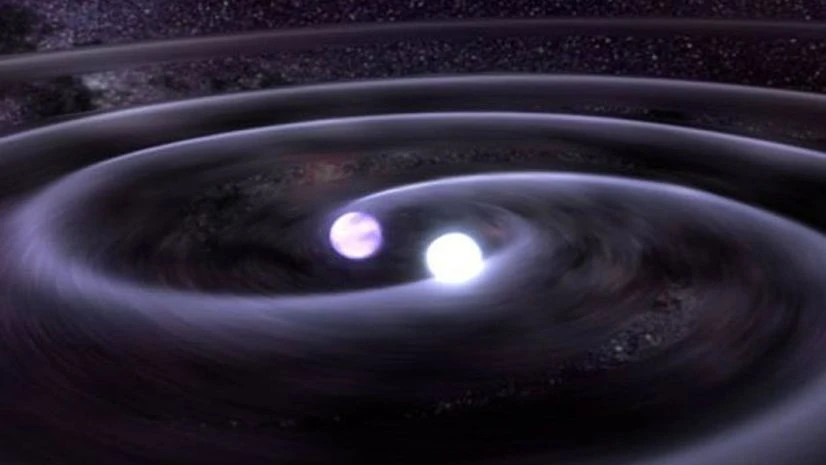For the first time, scientists have detected the gravitational waves - ripples in the fabric of space and time - produced by the collision of two ancient remnants of neutron stars 120 million light years away.
The waves were detected on August 17 this year at the Laser Interferometer Gravitational-Wave Observatory (LIGO) detectors in Louisiana and Washington and at the Virgo detector in Italy
This year's Nobel Prize in Physics was awarded to the creators of the LIGO instruments and its detection of gravitational waves.
Also Read
Scientists at Tel Aviv University in Israel are racing to use results from the LIGO experiments to expand the understanding of the universe.
"This is a milestone in the growing effort by scientists worldwide to unlock the mysteries of the universe and of earth," said Ehud Nakar of TAU.
The existence of gravitational waves was first predicted by Albert Einstein a century ago. They afford insight into an event that took place in a galaxy 120 million light years away and provide valuable information on the evolution of exploding neutron stars, as well as the origin of gold, uranium and other heavy metals on earth.
"It is difficult to exaggerate the importance of this discovery," said Dovi Poznanski, from TAU's School of Physics and Astronomy.
"Until recently, we could observe the universe only through light waves that reached us. This new ability to study gravitational waves is analogous to a sense of touch," said Poznanski.
"It's as though we now have the ability to explore the universe through both sight and touch," he said.
"This discovery has allowed astronomers to combine gravitational waves with light and produce a detailed model of the emission for the first time. This introduces a new era in astronomy," said Gottlieb.
A neutron star forms when a star much bigger and brighter than the Sun exhausts its thermonuclear fuel supply and explodes into a violent supernova.
The explosion of neutron stars, which are made almost entirely of neutrons, was detected by multiple telescopes across the electromagnetic spectrum, from gamma rays and visible light to radio waves.
(Only the headline and picture of this report may have been reworked by the Business Standard staff; the rest of the content is auto-generated from a syndicated feed.)

)
